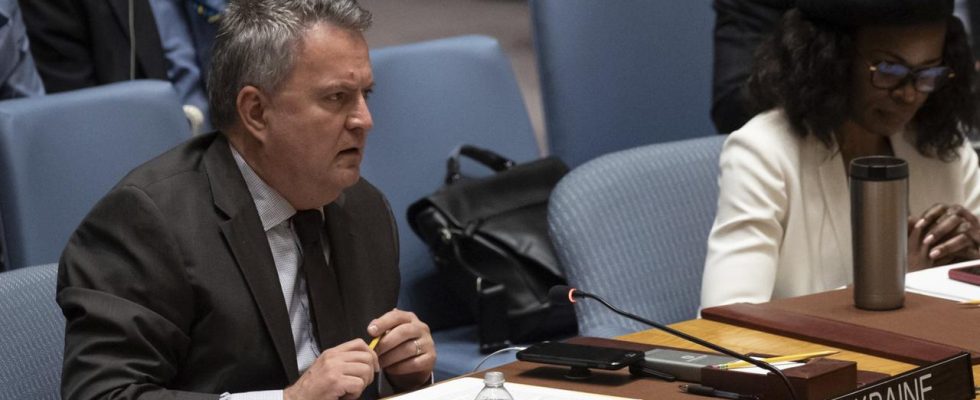After the destruction of the Kakhovka dam, Kiev and Moscow have blamed each other before the UN Security Council. Ukraine’s UN ambassador said the blast was “another example of Russian genocide.”
The tragedy surrounding the destroyed Kachowka dam is another example of how terrible the war is for the people, UN Secretary-General Antonio Guterres said before the special session of the Security Council – which took place without him.
Ukraine accuses Russia of blowing up the dam. Moscow claims that Ukrainian troops shelled the facility.
But like almost all members of the Security Council, Guterres already emphasized the key point: the destruction of the dam in southern Ukraine was a further, disastrous impact of the Russian invasion of the neighboring country.
This is another devastating consequence of the Russian invasion of Ukraine.
Exact background is still unclear
Guterres also emphasized that the United Nations had no independent knowledge of how the dam was destroyed. That was also what Washington’s UN representative, Robert Wood, said before the meeting. There is still no reliable information about the background of the destruction.
Wood stressed that he considered sabotage by Kiev to be unlikely. “Why would Ukraine do something like this to its own territory and its own people, flooding its land and forcing tens of thousands to flee their homes? It just doesn’t make sense.”
Russia sets conditions for UN access
Before entering the Security Council hall, Nebensya told journalists: The United Nations should not make the same mistakes as when investigating the attack on the Nord Stream pipelines.
Ukraine’s UN Ambassador Sergiy Kyslytsya accused Russia of lying again in the Security Council. After all, Russia controls the area around the destroyed dam. A bombardment from outside would not have been possible.
His Russian counterpart, Nebensya, had also stated that Russia would only allow UN aid workers into areas controlled by Moscow if they traveled there via Russia.
Blasting has far-reaching consequences
UN emergency aid coordinator Martin Griffiths was also shocked before the Security Council. When he last informed the Council about the humanitarian situation three weeks ago, he referred to the deaths and suffering of the civilian population on both sides of the conflict: “And today’s news means that the plight of the people in Ukraine is getting worse again .”
At least 40 settlements are partially or completely flooded and there will be more in the next few days. UN agencies have provided humanitarian aid to at least 16,000 people who have been made homeless by the floods. The dam was an important source of water for agriculture. Its destruction is a blow to food production.
Due to the impaired water supply, there is now an increased risk of a nuclear accident at the Zaporizhia nuclear power plant. The International Atomic Energy Agency also warned of possible consequences for the cooling of Europe’s largest nuclear power plant, which is controlled by Russia.

